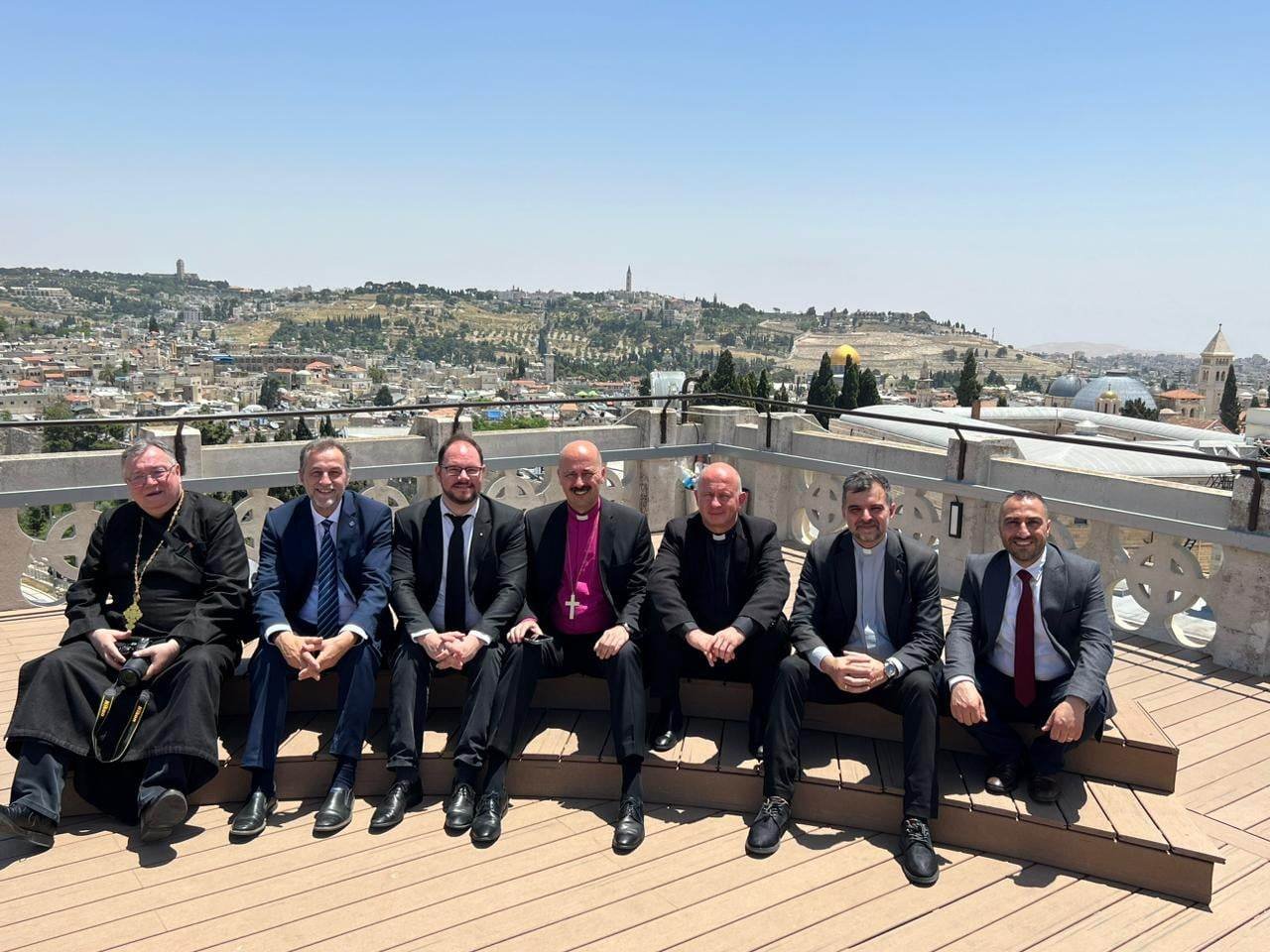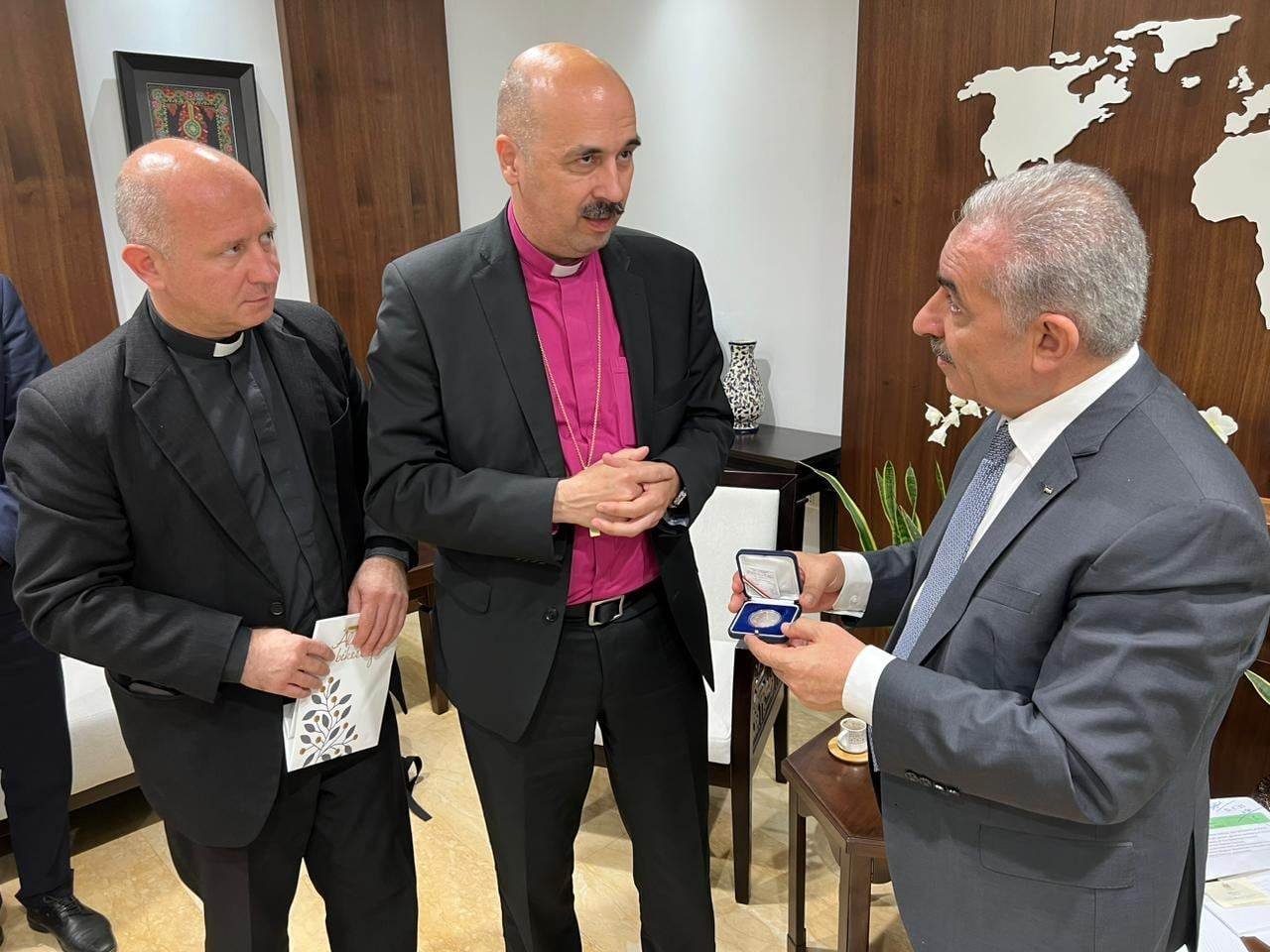The Ecumenical Council of Churches in Hungary (ECCH) delegation visited the Holy Land on May 15-18 at the invitation of the Higher Presidential Committee of Churches Affairs in Palestine. The delegation was led by Lutheran bishop Péter Kondor, and the Reformed Church in Hungary was represented by András Gér, General Secretary of the Synod. President of the Hungarian Baptist Union János Papp, Superintendent László A. Khaled of the Hungarian Methodist Church, Romanian Orthodox Deacon Marius Magyar and General Secretary of ECCH Vilmos Fischl were also members of the delegation.

Romanian Orthodox Deacon Marius Magyar, President of the Hungarian Baptist Union János Papp, General Secretary of the Synod of the RCH András Gér, Bishop of the Evangelical Lutheran Church Péter Kondor, General Secretary of ECCH Vilmos Fischl, Superintendent László A. Khaled of the Hungarian Methodist Church and member of the Presidential Committee for the Follow-up of Church Affairs in Palestine Raed Hanania
The delegation had a discussion with the Patriarchal Vicar of the Greek Orthodox Church, Metropolitan Vindictus, who explained the three denominations that take care of the Church of the Nativity in Bethlehem: theirs, the Catholic Church, and the Armenian Church.
The members of the ECCH delegation also met with Hanna Hanania, the Christian Mayor of Bethlehem. Hanania said that although only one percent of the Palestinian population is Christian, the mayor and deputy mayor of ten settlements must be Christian: Bethlehem is one of these settlements. In the city, the delegation visited the Evangelical-run Dar Al-Kalima University, where the President and Director of the institute, Mitri Raheb, shared the difficulties and joys the university has faced in the past period. Mitri Raheb mentioned that they are open to establishing brother university relations with Hungarian church universities.
The Hungarian delegation was also received by Palestinian Prime Minister Dr. Mohammad Shtayyeh. The Prime Minister explained that their situation is difficult due to the constant control of the Israeli authorities. Bishop Péter Kondor, who led the delegation, said they had come to build bridges and would like the traditionally good Hungarian-Palestinian relationship to be strengthened again. The bishop presented the prime minister with a Kölcsey Ferenc Memorial Medal on the occasion of the 200th anniversary of the Hungarian national anthem.

Members of the delegation and the Palestinian Prime Minister
The Hungarian delegation held an official meeting with the the former bishop of the Lutheran Church and former president of the Lutheran World Federation, Munib Younan, and the newly appointed Syrian Orthodox Archbishop Mor Anthimos Jack Yakoub, Latin Bishop William Shomali, and the Franciscan Father Ibrahim Faltas, Deputy of the Custody the of Holy Land, and the Syrian Catholic Archbishop Mar Afram. The delegation led by Péter Kondor met Theophilos III, Patriarch of Jerusalem, according to whom Hungary is one of the few European states where the government pays attention to the values of Christianity.
During the delegation’s stay, Palestinians celebrated the day of mourning called Nakba, i.e. the anniversary of the establishment of the state of Israel, which they commemorate every year because the Palestinians lost their homeland that day and many were forced to become refugees.
Nearly fifty thousand Christians live in Palestine; yet, despite their small number, the Palestinian Authority grants them additional rights. For example, four of the twenty ministers and nearly thirty of the Palestinian ambassadors are Christians. The relatively small number of Christians has a social presence much greater than its proportions, about forty percent of the school network, but also a significant part of the social and health care system operates under Christian maintenance.